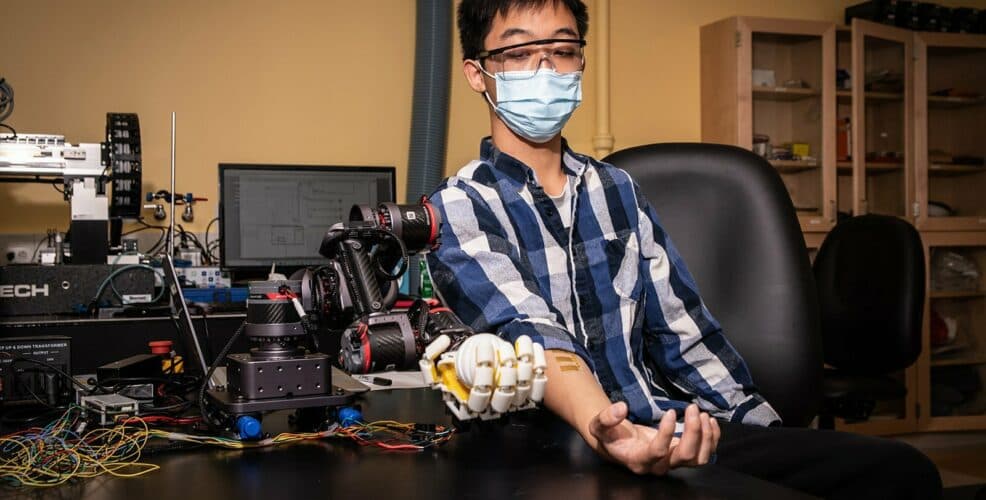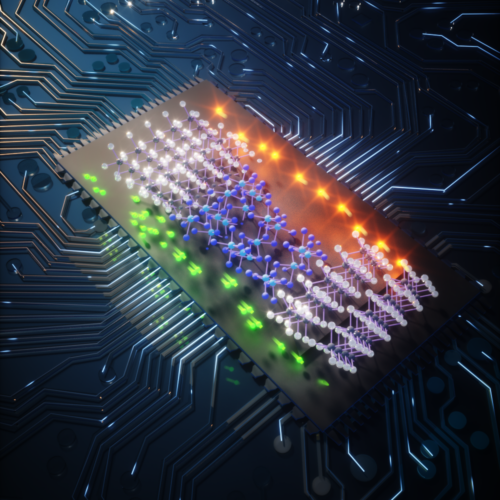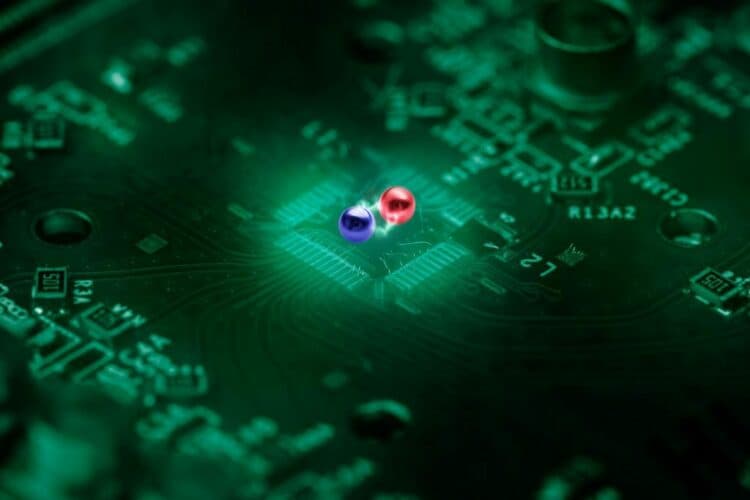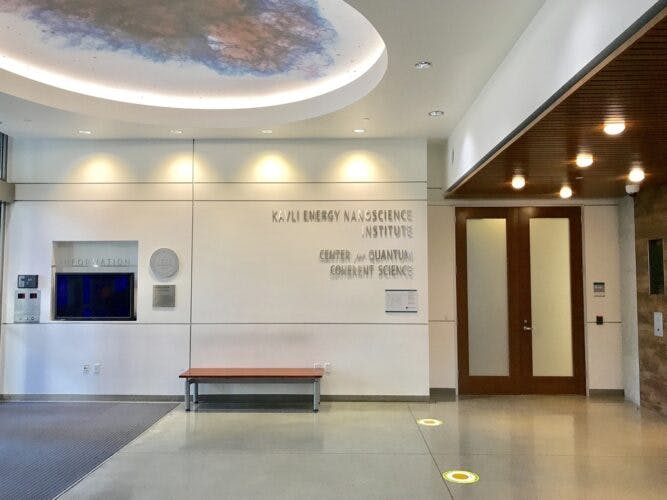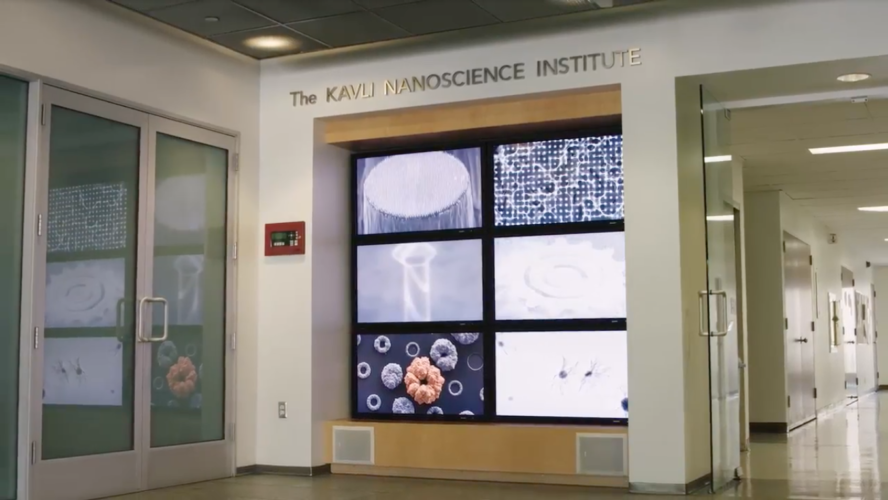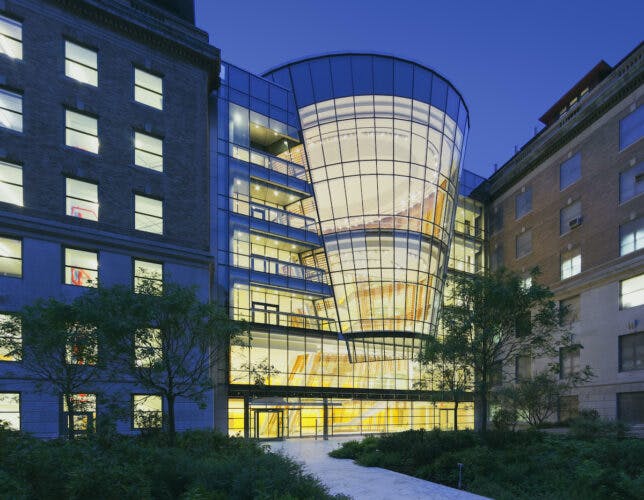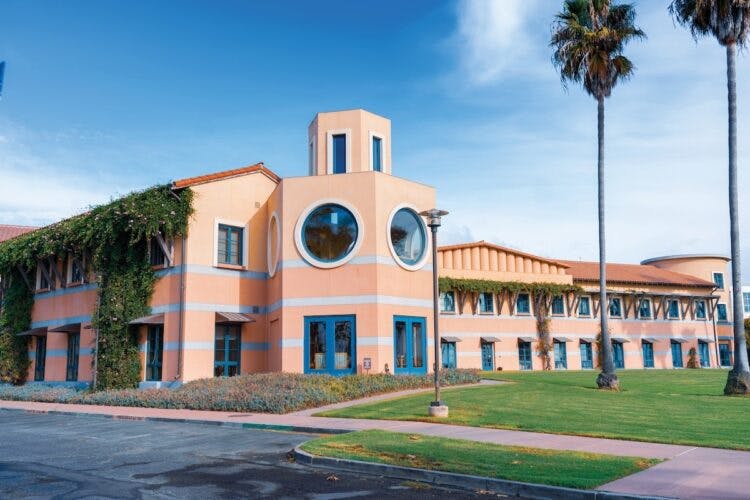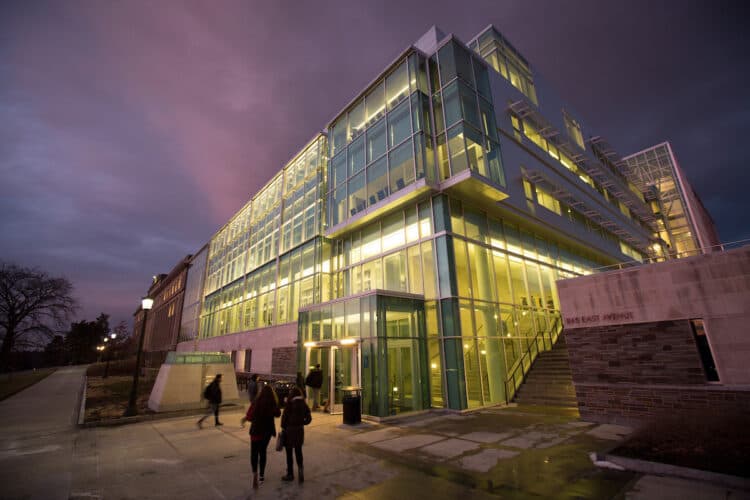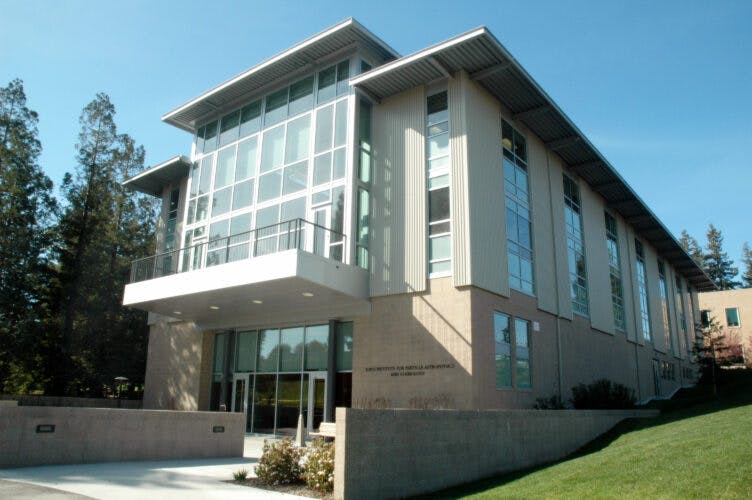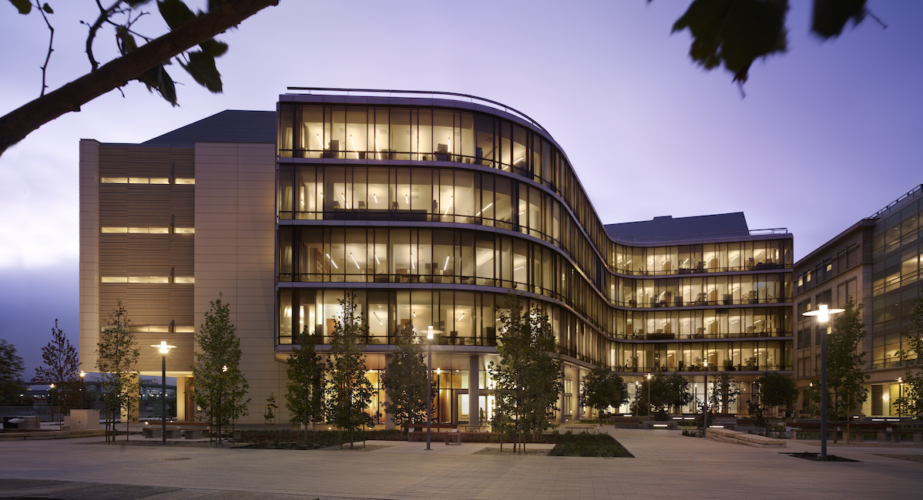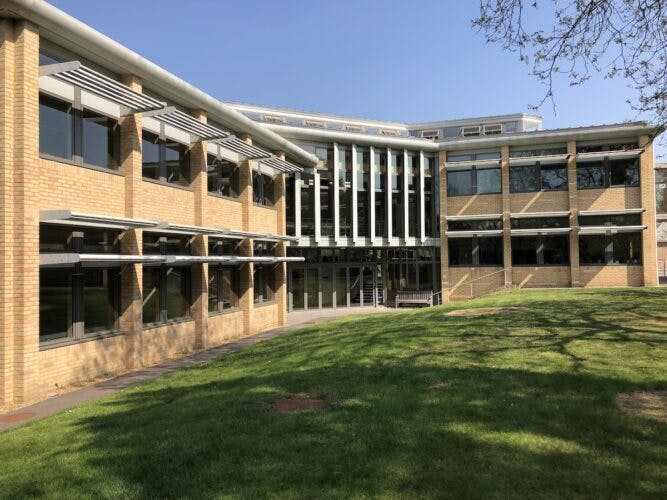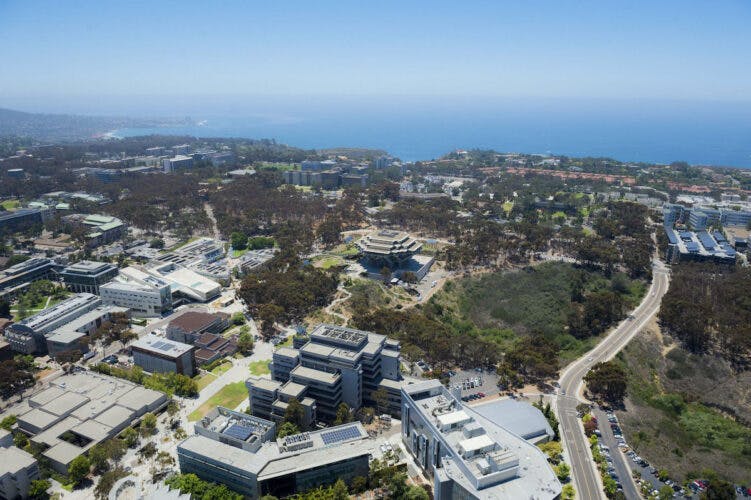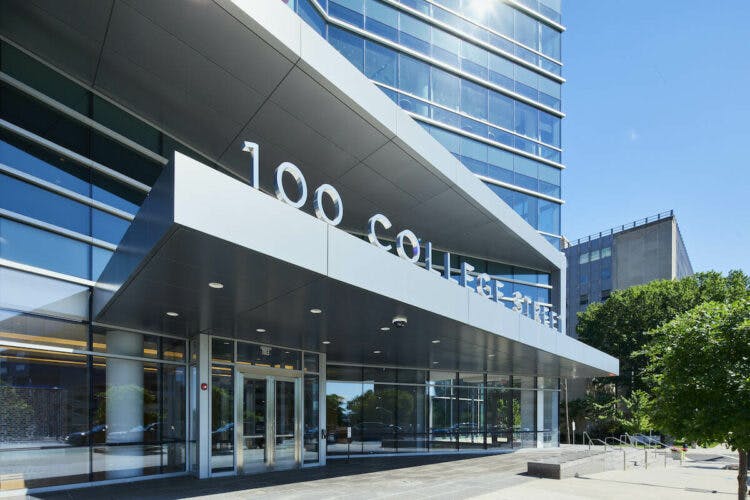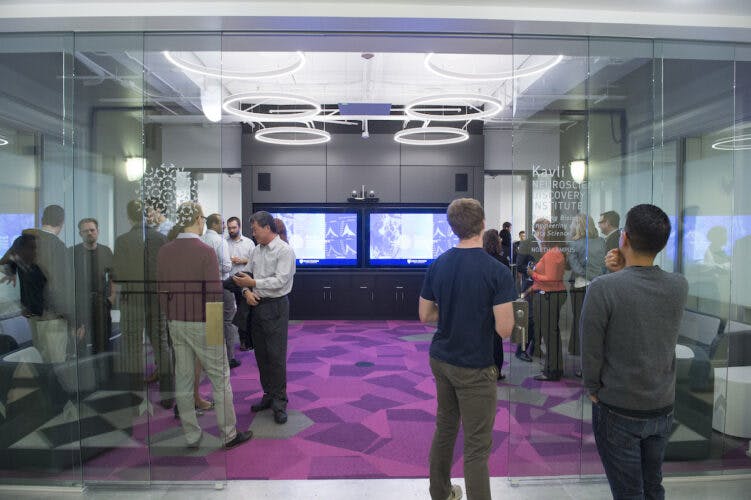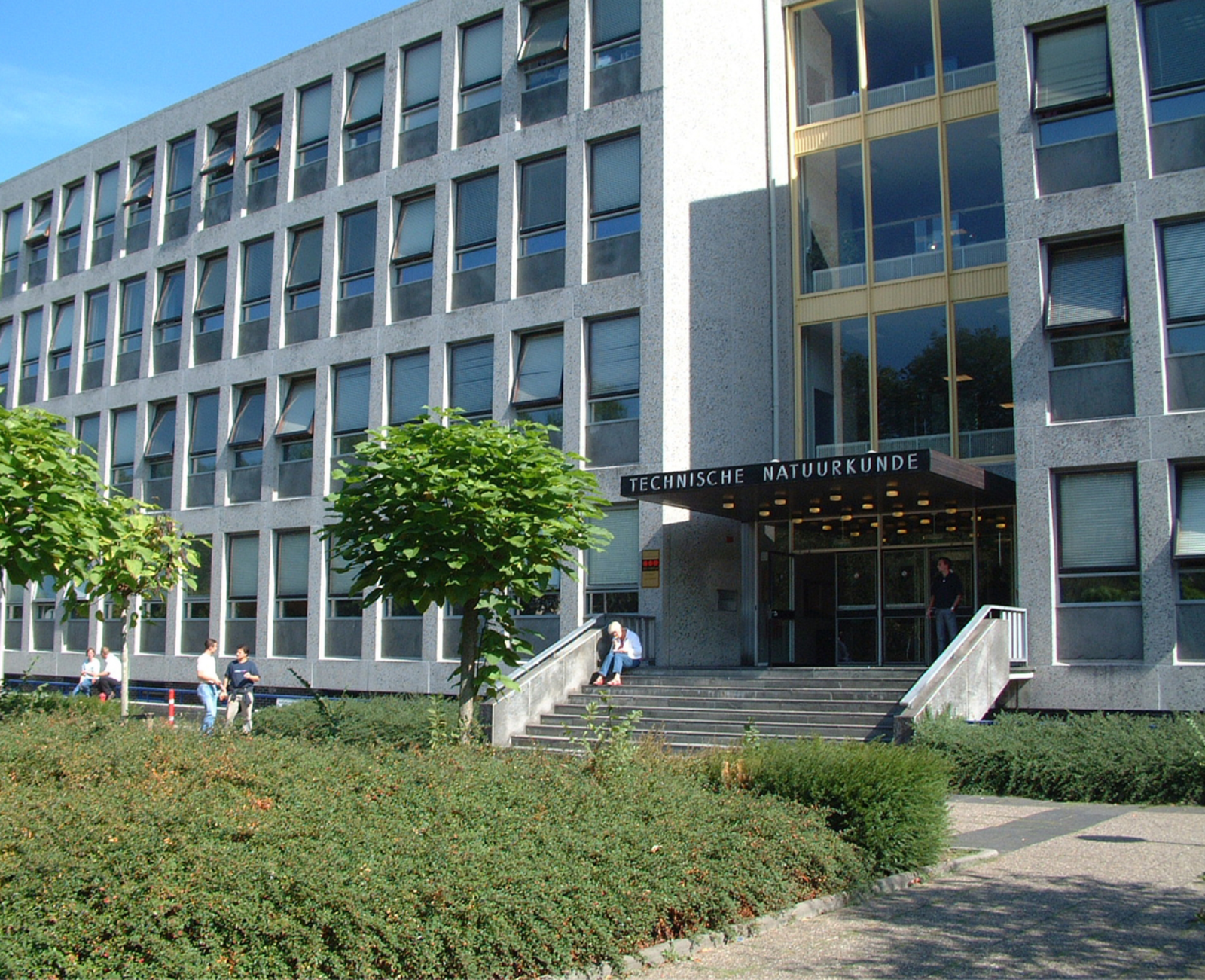
Delft University of Technology, NetherlandsKavli Institute of Nanoscience Delft
Exploring the theoretical and practical frontiers of nanoscience
At the Kavli Institute of Nanoscience Delft (KIND), researchers study new physics and exploit novel principles to develop new devices, materials and methods of fabrication. They explore the secret of protein nanomachinery in cells, the coupling of biological systems to solid state information processing, molecular electronics and quantum information processing.
FOUNDED 2004
Leadership
AREAS OF INQUIRY
- The electronic, magnetic and mechanical properties of molecules, assemblies of molecules and crystals of molecules.
- Fabrication of nanostructures, either top-down through electron-beam lithography or bottom-up through self-assembly from atoms or molecules.
- Advancing the technology of high-resolution electron microscopy for both study and fabrication.
- Studying biomolecules in order to understand the “nanomachinery” of proteins in cells and biological systems
- Developing new structures, such as nanopores and nanofluidic channels, to study biomolecules.
- Creating new devices based on the physics of photonic (light) and electronic waves at the nanoscale.
- Investigating spin transport, how the interplay between spin and charge of electrons determines the behavior of semiconducting and superconducting materials and electronic devices.
- Working toward quantum computing by understanding and controlling the quantum properties of structures such as superconducting rings, quantum dots, nanowires and carbon nanotubes.
Nanoscience Research Highlights
Research highlights from Kavli Nanoscience Institutes
Jul 20, 2022
Nanoscience Research Highlights
Research highlights from Kavli Nanoscience Institutes
Jun 10, 2022
Nanoscience Research Highlights
Research Highlights from Kavli Nanoscience Institutes
May 24, 2022
Nanoscience Research Highlights
Research Highlights from Kavli Nanoscience Institutes
Apr 04, 2022
More Institutes
At Kavli Institutes around the world, scientists explore the frontiers of science in the fields of astrophysics, nanoscience, neuroscience and theoretical physics.
See all institutesNanoscience
University of California, Berkeley
Astrophysics
University of Chicago
University of Tokyo
Neuroscience
Norwegian University of Science and Technology
Nanoscience
California Institute of Technology
Neuroscience
Rockefeller University
Theoretical Physics
University of California, Santa Barbara
Nanoscience
University of Oxford
Neuroscience
Columbia University
Cornell University
Stanford University
Neuroscience
University of California, San Francisco
Astrophysics
University of Cambridge
Theoretical Physics
University of Chinese Academy of Sciences
Massachusetts Institute of Technology
Neuroscience
University of California, San Diego, and the Salk Institute for Biological Studies
Neuroscience
Yale University
Neuroscience
Johns Hopkins University
Astrophysics
Peking University-Beijing


